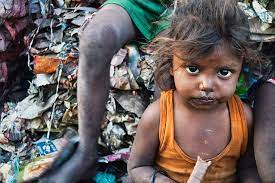Essay On Poverty 2023 | Understanding Poverty: A Call for Collective Action

Poverty (Essay On Poverty 2023| Understanding Poverty: A Call for Collective Action) is a pressing issue that touches the lives of millions around the world – poverty. It is a topic that demands our attention, our empathy, and our collective effort to bring about positive change.
Introduction
Poverty is a harsh reality that millions of people around the world face daily. It is a complex issue that encompasses various dimensions, including economic, social, and psychological aspects. In simple terms, poverty means not having enough resources to meet one’s basic needs for food, shelter, clothing, and healthcare. This essay aims to shed light on the causes and consequences of poverty, as well as propose potential solutions to alleviate this pressing issue.
Causes of Poverty
Lack of Education:
Education is often considered a key factor in breaking the cycle of poverty. Without access to quality education, individuals may struggle to acquire the skills and knowledge needed to secure stable employment.
Unemployment and Underemployment:
A significant number of people, particularly in developing countries, face unemployment or underemployment. This means they either don’t have a job or have a job that does not provide sufficient income to cover basic needs.
Low Wages:
Even for those fortunate enough to have employment, low wages can perpetuate the cycle of poverty. Many people work long hours for meager pay, leaving them unable to make ends meet.
Healthcare Costs:
Inadequate access to healthcare can lead to financial strain, especially when individuals have to pay out-of-pocket for medical expenses.

Discrimination and Inequality:
Discrimination based on factors such as race, gender, or ethnicity can limit opportunities for certain groups of people, making it harder for them to escape poverty.
Lack of Basic Services:
In some regions, there is a lack of access to clean water, sanitation facilities, and reliable electricity. These basic services are crucial for a decent standard of living.
Geographic Disparities:
Poverty rates can vary significantly from one region to another. Rural areas often face greater challenges due to limited access to resources and job opportunities.
Family Size and Structure:
Larger families or single-parent households may find it more difficult to make ends meet, as there are more mouths to feed and more needs to address.
Consequences of Poverty
Malnutrition and Health Issues:
Poverty often leads to inadequate nutrition, which can result in a range of health problems, particularly for children. Malnourished individuals are more susceptible to illnesses and have lower overall life expectancy.
Limited Access to Education:
Children from impoverished backgrounds may have reduced access to quality education. This lack of educational opportunities can hinder their chances of escaping poverty in the future.
Housing Instability:
Many impoverished families struggle to maintain stable housing. This can lead to frequent moves or even homelessness, which further disrupts the well-being of individuals and families.
Psychological Strain:
Living in poverty can take a toll on one’s mental health. The constant stress of financial insecurity and the inability to meet basic needs can lead to anxiety, depression, and other mental health issues.
Cycle of Generational Poverty:
Poverty often becomes a cycle that is passed down from one generation to the next. Children born into impoverished families face significant challenges in breaking free from this cycle.
Limited Economic Growth:
Societies with high levels of poverty tend to have slower economic growth. This is because a large portion of the population is unable to contribute fully to the workforce and consumer market.
Social Unrest and Crime: Poverty can create an environment ripe for social unrest and crime. When individuals feel hopeless and marginalized, they may turn to illegal activities as a means of survival.
Solutions to Alleviate Poverty
Education and Skills Development: Investing in education and skills training programs can empower individuals to secure stable employment and increase their earning potential.
Fair Wages and Labor Rights:
Enforcing fair labor practices and ensuring that workers receive a livable wage for their efforts is crucial in combating poverty.
Access to Healthcare:
Implementing universal healthcare systems or providing affordable healthcare options can reduce the financial burden on families and individuals.
Social Safety Nets:
Establishing effective social safety net programs, such as unemployment benefits, food assistance, and housing subsidies, can provide a crucial lifeline for those in need.
Addressing Discrimination and Inequality: Policies aimed at reducing discrimination and promoting equality can create a more inclusive society where everyone has a fair shot at success.
Infrastructure Development:
Investing in basic infrastructure like roads, bridges, and utilities can open up new economic opportunities in underserved regions.
Microfinance and Entrepreneurship Programs: Providing access to small loans and entrepreneurship training can empower individuals to start their own businesses, generating income and creating jobs.
Conclusion
Poverty is a deeply entrenched global challenge that requires concerted efforts from governments, communities, and individuals alike. By addressing the root causes and implementing targeted solutions, we can work towards a more equitable world where everyone has the opportunity to lead a dignified life. It is through collective action and a commitment to social justice that we can ultimately eradicate the blight of poverty from our societies
